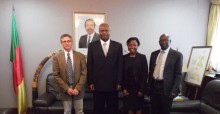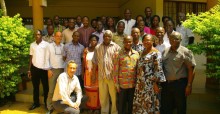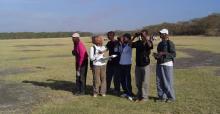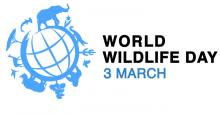A series of AEWA-related meetings – undertaken by the Technical Support Unit (TSU) and the Coordinator of the African Initiative of AEWA - took place in Cameroon from 9 to 17 June 2014 with the aim of building capacity for conservation training and promoting the country’s accession to AEWA. The week of meetings with Cameroonian stakeholders started with representatives of the Technical Support Unit (TSU) to the African Initiative of AEWA undertaking a field mission to the Garoua Wildlife College from 9 to 13 June 2014. The college plays a central role in developing key competencies in wildlife management throughout the continent, in particular in providing wildlife-related training for Francophone experts in sub-Saharan Africa.






